Nomi 2.5 | Tablet | 6 pcs
৳ 151.02
Brand Name: Nomi Tablet
Generic: Zolmitriptan
2.5 mg
Manufacturer: Square Pharmaceuticals Ltd.
Unit Price: ৳ 25.17 (2 x 6: ৳ 302.04)
Strip Price: ৳ 151.02
Indications
Therapeutic Class
Pharmacology
Dosage & Administration
The recommended dose of Zolmitriptan to treat a migraine attack is 2.5 mg. If symptoms persist or return within 24 hours, a second dose has been shown to be effective, but it should not be taken within 2 hours of the initial dose. If a patient does not achieve satisfactory relief with 2.5 mg doses, subsequent attacks can be treated with 5 mg initial doses of Zolmitriptan. In those patients who respond, significant efficacy is apparent within 1 hour of dosing. Zolmitriptan is equally effective whenever the tablets are taken during a migraine attack, although it is advisable that Zolmitriptan tablets are taken as early as possible after the onset of migraine headache.
Zolmitriptan is not indicated for prophylaxis of migraine. In the event of recurrent attacks, it is recommended that the total intake of Zolmitriptan in a 24 hour period should not exceed 10 mg.
Interaction
From studies there is no evidence that concomitant use of migraine prophylactic medications (for example b blockers, oral dihydroergotamine, Pizotifen) has any effect on the efficacy or unwanted effects of Zolmitriptan. The pharmacokinetics and tolerability of Zolmitriptan oral tablets were unaffected by acute symptomatic treatments such as Paracetamol, Metoclopramide and Ergotamine. Concomitant administration of other 5HT1B/1D agonists within 12 hours of Zolmitriptan treatment should be avoided. Data from healthy subjects suggest that there are no pharmacokinetic or clinically significant interactions between Zolmitriptan and Ergotamine, however, the increased risk of coronary vasospasm is a theoretical possibility.
Therefore, it is advised to wait at least 24 hours following the use of Ergotamine containing preparations before administering Zolmit. Conversely it is advised to wait at least six hours following use of Zolmitriptan before administering any Ergotamine preparation. A maximum intake of 5 mg Zolmitriptan nasal spray in 24 hours is recommended in patients taking an MAO inhibitor, general P450 inhibitor. Fluoxetine does not affect the pharmacokinetic parameters of Zolmitriptan. Therapeutic doses of the selective serotonin reuptake inhibitors (SSRIs), Fluoxetine, Sertraline, Paroxetine and Citalopram do not inhibit CYP1A2.
Contraindications
Zolmitriptan is contraindicated in patients with :
- Known hypersensitivity to any component of the product
- Uncontrolled hypertension
- Ischaemic heart disease
- Coronary vasospasm/Prinzmetal’s angina
- A history of cerebrovascular accident (CVA) or transient ischaemic attack (TIA)
Side Effects
Pregnancy & Lactation
Pregnancy: Zolmitriptan should be used in pregnancy only if the benefits to the mother justify potential risk to the foetus.
Lactation: Studies have shown that Zolmitriptan passes into the milk of lactating animals. No data exist in lactating women. Therefore, caution should be exercised when administering Zolmitriptan to lactating women.
Precautions & Warnings
Use in Special Populations
Use in children: Safety and efficacy of Zolmitriptan in paediatric patients have not been established.
Use in patients aged over 65 years: Safety and efficacy of Zolmitriptan in individuals aged over 65 years have not been systematically evaluated.
Patients with hepatic impairment: The dose of Zolmitriptan should be reduced in patients with moderate to severe hepatic impairment, maximum dose of 5 mg in 24 hours is recommended.
Patients with renal impairment: No dosage adjustment is required.
Storage Conditions
| Generic Name | Zolmitriptan |
|---|---|
| Size | 2.5 mg |
Only logged in customers who have purchased this product may leave a review.



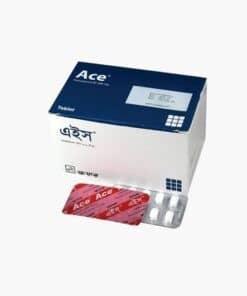

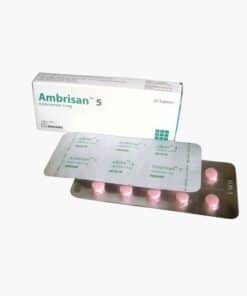

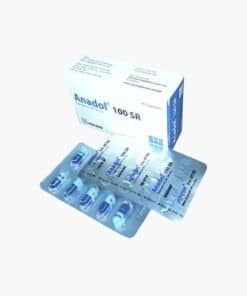
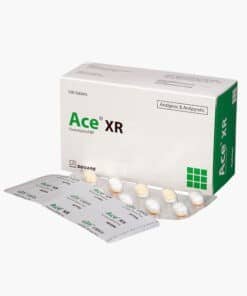
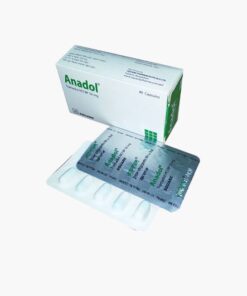
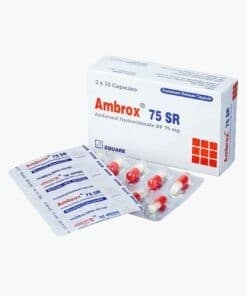
Reviews
There are no reviews yet.